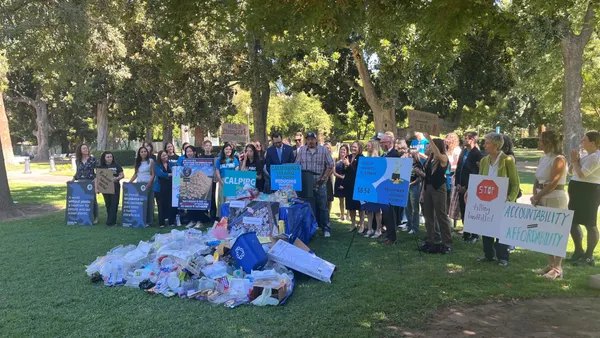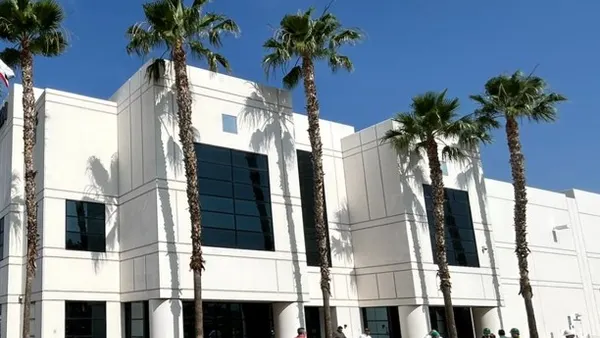Dive Brief:
- The Solid Waste Association of North America (SWANA) announced Monday the publication of a report detailing ways the North American waste industry could learn from European-style mechanical biological treatment (MBT) facilities. The report came from SWANA's Applied Research Foundation (ARF).
- SWANA said the report was of interest because MBT facilities can play a role in achieving "zero waste" goals. Jeremy O'Brien, director of applied research for SWANA, told Waste Dive in an email that there is an MBT facility under construction in Martinsburg, WV.
- Currently, the full report is only available to SWANA ARF subscribers. A year from publication, SWANA will make the report available to all members and an executive summary may be available.
Dive Insight:
MBT came into play in Europe once the European Union passed a regulation that waste going to landfill must be biologically stable. MBT facilities combine what might be considered "typical" waste sorting with biological functions like composting or anaerobic digestion. They produce recovered materials (like plastics and metal) for recycling, a compost-like product and a combustible product for energy recovery.
As more cities, local governments and states consider "zero waste" goals or set high diversion targets, the industry will have to consider more tools for sorting and disposal. ARF in 2017 saw a need for a report which analyzed and presented data and lessons from how MBT facilities in Europe have fared over the last two decades.
"I definitely think that there is a potential for MBT facilities to take off in North America, especially as communities look for alternative ways to increase their diversion rates and to stabilize their waste before landfill disposal," O'Brien said in an email to Waste Dive.
Already in the U.S., some MRFs have dedicated mixed-waste processing lines that separate organics for composting. O'Brien said MRFs with that capability are "similar to but not the same as" MBT plants — so the concept is not without precedent domestically. In addition to Entsorga's West Virginia project, scheduled to open this year, the Fiberight project in Maine will also be using a form of MBT.
Cities in the U.S. from San Francisco to Boston to Louisville, KY are pursuing zero waste or waste reduction goals, and sustainability continues to grow as a priority for the industry and for customers. MBT could be another tool that industry leaders can use to implement those plans and to keep contamination low — especially as it relates to organics.









